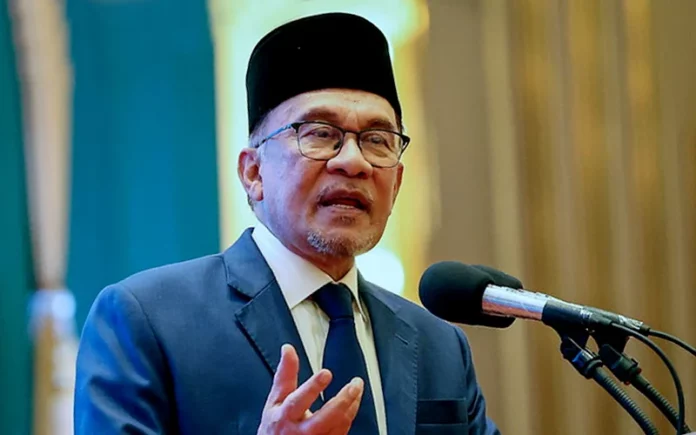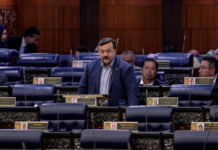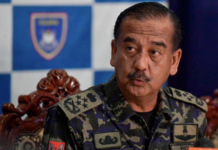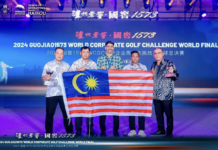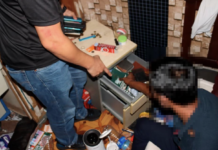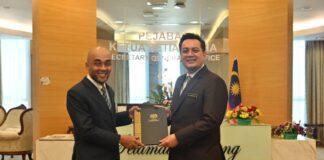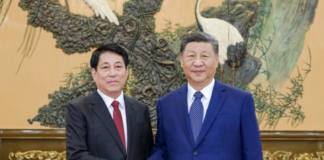KUALA LUMPUR, April 7 — There is absolutely no truth to the allegation that Prime Minister Datuk Seri Anwar Ibrahim was responsible for “diverting gas” from the Malaysia-Thailand Joint Development Area (JDA) to Songkhla, Thailand, in 1996 when he was finance minister, according to Datuk Paduka Rahim Kamil Sulaiman.
In a statement, the Kelantanese and former petroleum engineer said it was wrong to suggest that Anwar was responsible “in any way” for the JDA gas being diverted to Songkhla.
Rahim, 69, said that in early 1996, Koperasi Usaha Bersatu Malaysia Bhd (KUB) chairman, the late Datuk Hassan Harun, invited him to participate in the development of the petrochemical industry in Pantai Senok, Kelantan.
He noted that on May 9, 1996, Anwar witnessed the memorandum of understanding signing ceremony between KUB and Perbadanan Kemajuan Iktisad Negeri Kelantan (PKINK) for the development of the petrochemical industry in Pantai Senok, Kelantan.
Rahim said he agreed to Hassan’s invitation on the condition that Hassan, as a famous son of Kelantan, would marshal his political connection to land the condensate-rich gas from the Malaysia-Thailand JDA to Kelantan.
Discussions, he said, were also held with senior officials of Thailand’s national oil company PTT because there were former Petronas oil engineers with good connections with the Thai side.
“The Thais were not averse to creating a new market in Malaysia,” he explained.
According to Rahim, after making a presentation to the then-prime minister Tun Dr Mahathir Mohamad and confident that KUB had the support of Dr Mahathir who was the de facto minister of petroleum, he joined KUB in April 1996.
He said that at that time, Anwar fully supported the move to cooperate with the Kelantan state government.
“During the signing ceremony on May 9, 1996, Anwar assured that the Federal Government would not have any problems with the fact that the Kelantan government was open to cooperation for the benefit of the people of Kelantan.
“The late Tuan Guru (Datuk Seri) Nik Abdul Aziz Nik Mat, Menteri Besar of Kelantan, welcomed this assurance when we briefed him,” Rahim said.
KUB proceeded with commissioning a German engineering company in collaboration with Ranhill Bersekutu to prepare an interim report on the technical feasibility of the proposed petrochemical complex on a 5,000-acre area at Pantai Senok.
The report identified gas separation and petrochemical processes two decades ahead of the existing Pengerang petrochemical complex in Johor, he said.
Rahim said the implementation of the Pantai Senok Integrated Petrochemical Complex (PSIPC) would have propelled Malaysia to become a supplier of “smart plastics”, ahead of resource-poor South Korea in producing modern industrial products.
The private sector, especially KUB and Malaysian Resources Corporation Bhd (MRCB), was very excited about the prospect of spearheading the development of Kelantan, he said, but the excitement was premature.
He said Malaysians know that the relationship between Dr Mahathir and his deputy began to sour in mid-1997 and by Sept 2, 1998, Anwar was already out of Umno and the government.
“He was arrested under the ISA (Internal Security Act) on Sept 20 (1998)… When did Anwar have time to ‘divert JDA gas’ from Kelantan to Songkhla?” he asked.
In early 1998, KUB, like other Malaysian corporations, was also at a critical stage to reduce the effects of the Asian financial crisis, causing the ambitious Pantai Senok project to be postponed, he said.
“Petroleum was not Anwar’s portfolio. In all probability, the Malaysia-Thailand Joint Authority (MTJA) decided on the Songkhla landing around late 1999 or early 2000.
“This joint authority only approved the production sharing agreement in September 2004,” he added.
What prevented Malaysia from joining the ranks of South Korea, Singapore, and Taiwan in modern industries by implementing PSIPC was a “comedy of errors and political self-flagellation,” he said.




